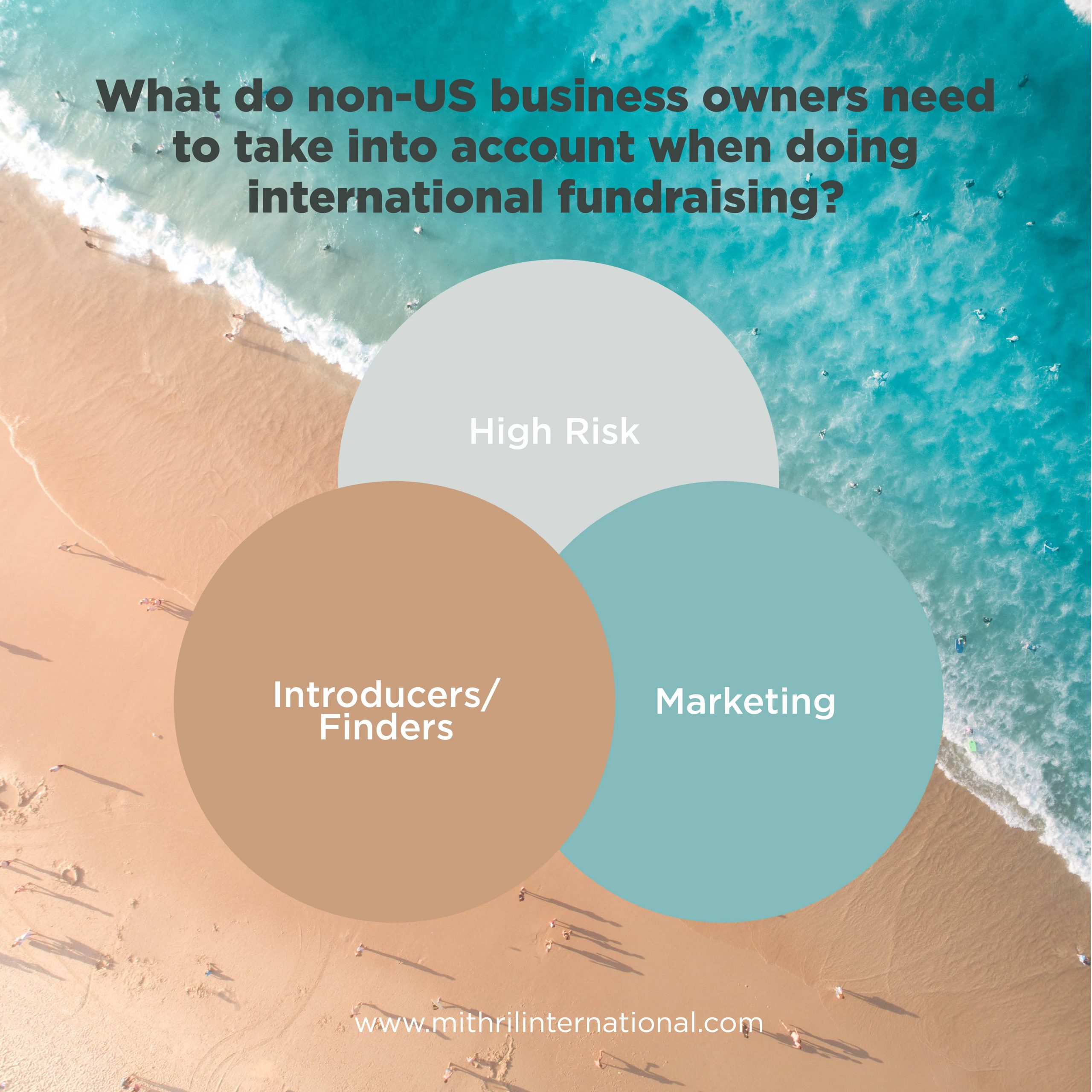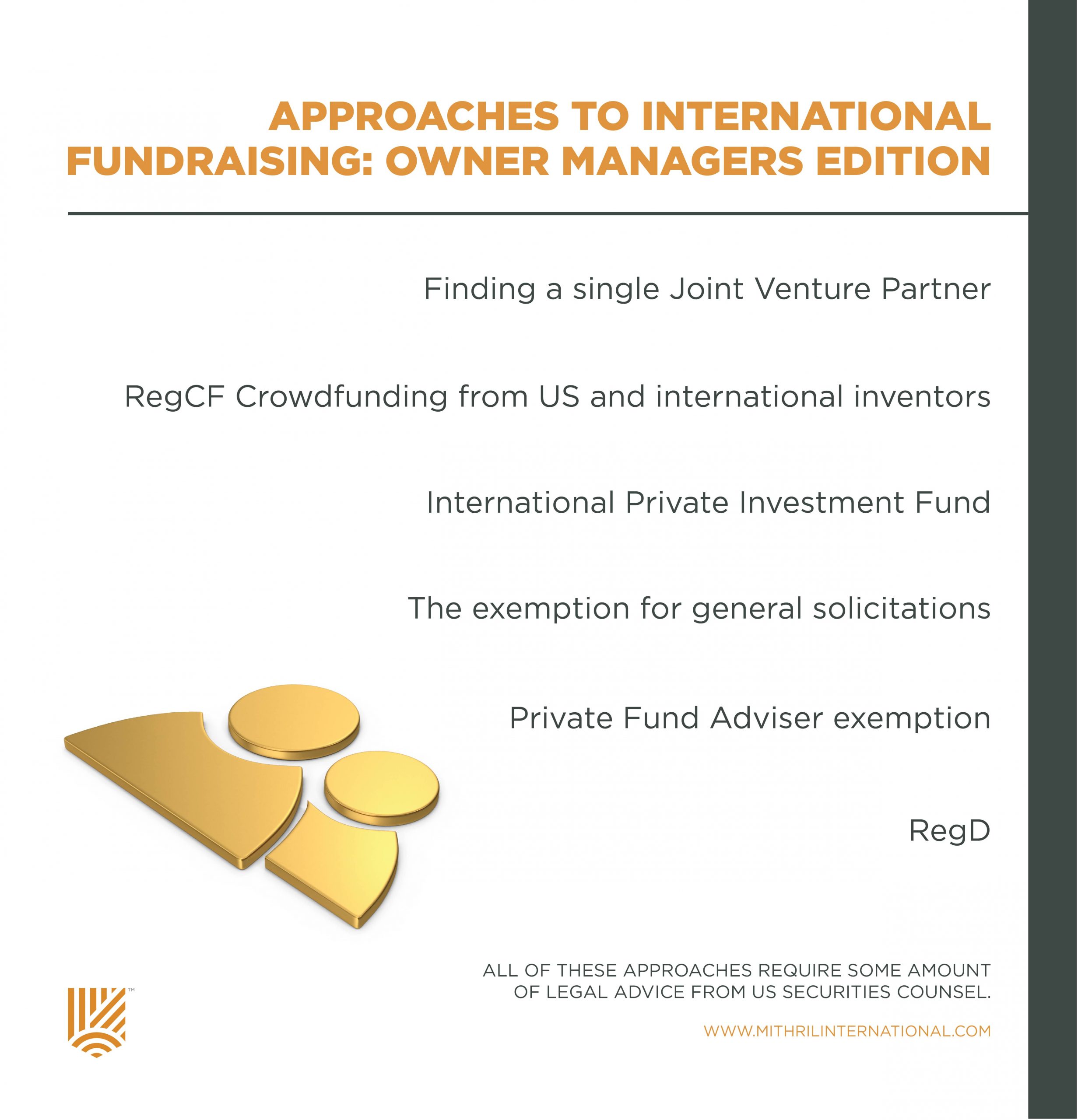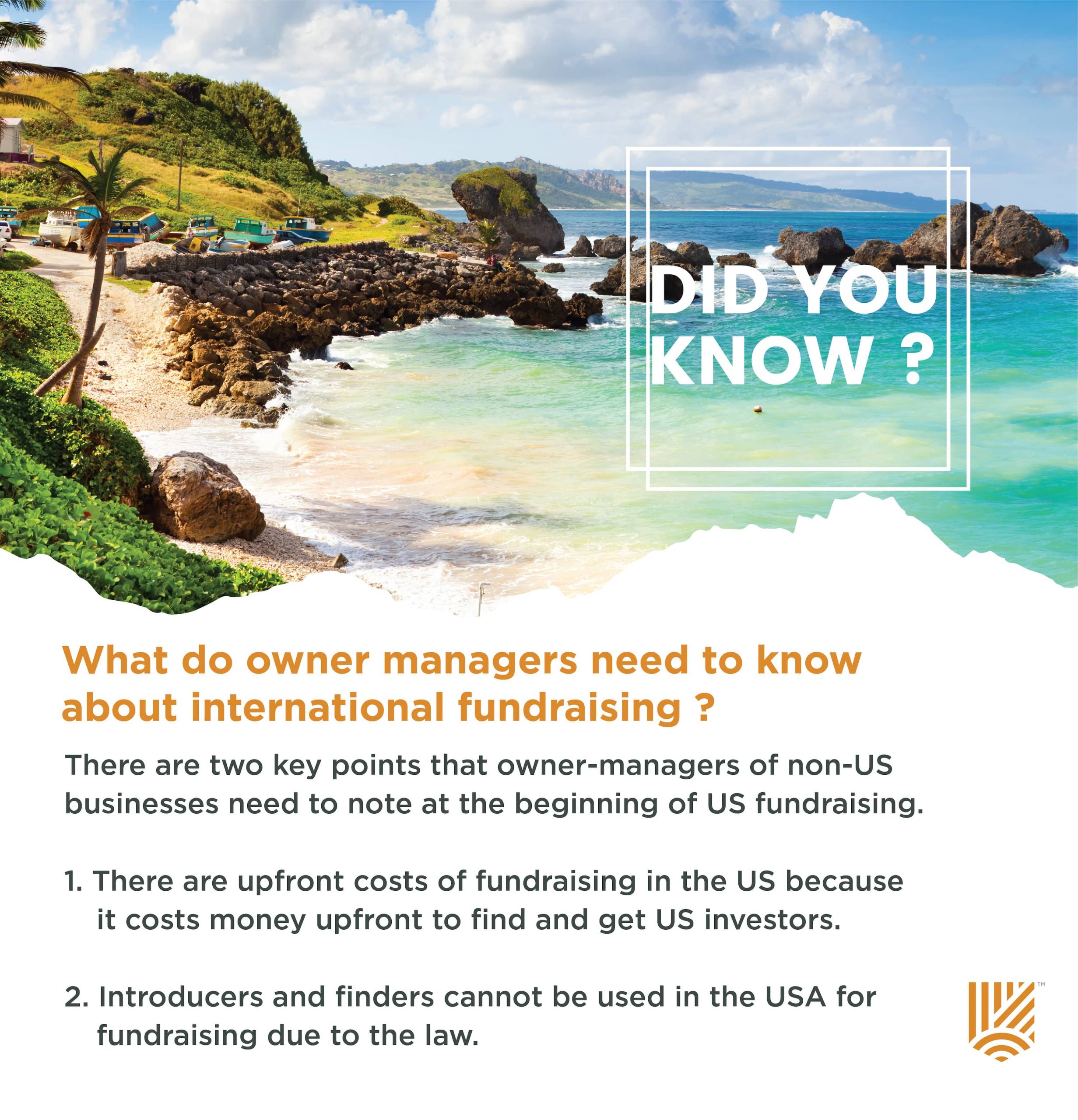DISCLAIMER
You will need to speak to US Securities counsel for a more detailed explanation. You have to consult a US Securities attorney to be able to work out how to promote your offering and find potential investors. Our aim is to discuss the differences that apply to non-US business owners compared to US business owners when raising capital in the USA.
Fundraising in the US for non-US businesses.
If you own a non-US business, you need to work out how to find and promote your investment opportunity to the US and international investors. Finding and promoting information to potential US investors can be described as marketing. Marketing covers all the activities undertaken to find potential investors and get them to become investors in your project.

The USA has a large fundraising industry. In this newsletter, we explore how to raise capital from the US and international investors from the point of view of a non-US person who is raising funds for a non-US or international project. The business, whether it is oil & gas, mining, or agricultural export is classified as international in nature if it is not based in the US. This is a very important distinction.
Raising money for a non-US business is very different from raising money for a US Based business. US investors and US banks view owner-managed businesses based outside the US as high risk.
So in order to be successful at raising capital from the US and international investors, there are a number of things the non-US business owner has to take into account that US business owners don’t.

1️. HIGH RISK – Investment in non-US business is viewed as high risk by US banks and US investors.
2️. INTRODUCERS/FINDERS – You cannot use introducers who are paid commission to find and get investors.
3️. MARKETING – You need legal advice on how to market and do fundraising in the US. You cannot just use the internet and social media yourself.
So as you do your research on fundraising in the USA, remember that a lot of the solutions and approaches that US business owners take will not work for an international business. There are important differences.
US Securities laws and international fundraising.

One of the key rules flowing from US securities laws is the requirement that companies disclose material information about their business. This includes information about the company’s
- Financial condition
- Business model
- Risk factors
Companies must also disclose any material changes to this information.
The securities laws also prohibit companies from making false or misleading statements about their business. This includes statements made in marketing materials, such as brochures and website content. Companies that violate the securities laws can be subject to civil and criminal penalties. Violations can also result in bans on raising capital from investors.
When raising capital, businesses need to market and promote themselves in order to find investors. This process of solicitation or selling is regulated by securities laws in the United States. Finders or introducers are generally not allowed under these laws. If you are planning to raise capital, you should consult with a lawyer to ensure that you are in compliance with the securities laws.
Marketing is needed to find potential investors.
What is marketing?
When we speak about marketing in relation to international fundraising we mean finding the right potential investors and then providing them with the right promotional materials using correct and legal methods.
Raising capital or fundraising requires marketing, promotion, solicitation, or selling in order to find investors and get them to invest in your international business. After you produce the documents and financial projections and set up an LP/GP fund structure you have to find investors who will want to invest in your fund or structure.
As many owners know there is a lot of capital and experienced investors in the USA. The USA however is the most highly regulated jurisdiction when it comes to fundraising.
Everything outlined below is discussed in the context of consulting US Securities counsel on what marketing promotion and communications you can or cannot do with US investors. We are simply discussing the commercial issues around such advice.
Some of the legal approaches owner-managers take to International fundraising include.
All of these approaches require some amount of legal advice from US Securities counsel.

- Finding a single Joint Venture Partner
- RegCF Crowdfunding from the US and international investors
- International Private Investment Fund
- RegD
- The exemption for general solicitation
- Private Fund Adviser exemption
There are three stages to consider in relation to fundraising from US investors;
1️. Finding the right potential investors.
2️. Communicating the offer with potential investors.
3️. Transacting with investors.
These three stages differ in the US according to whether you are Crowdfunding or raising capital from accredited investors only.
Owner managers use Introducers to avoid upfront costs of fundraising.

There is an expectation among non-US fundraisers that fundraising can be done without any upfront costs. Introducers earn a commission if they find and introduce investors who actually invest in the project. Owner managers use introducers to do fundraising and find capital to avoid upfront costs of fundraising. There are two key points that owner-managers of non-US businesses need to note at the beginning of US fundraising.
1️. There are upfront costs of fundraising in the US because it costs money upfront to find and get US investors.
2️. Introducers and finders cannot be used in the USA for fundraising due to the law.
These are two very important points to note.
Owner managers should not use introducers/finders if fundraising in the USA.
Using introducers and finders works for fundraising done outside the USA. In the USA however, finders or introducers are generally not allowed. To be able to use finders those finders have to be paid on a basis unrelated to successful investment and have to be unrelated to things subsequent to the introduction of the potential investor. But even this position is not evident across different states.
Using a finder or introducer in the USA for fundraising exposes the person doing the fundraising to legal risks and liability in the US. Because if investors complain or file a legal action, the owner-manager has to return all money raised plus interest.


Leave a Reply